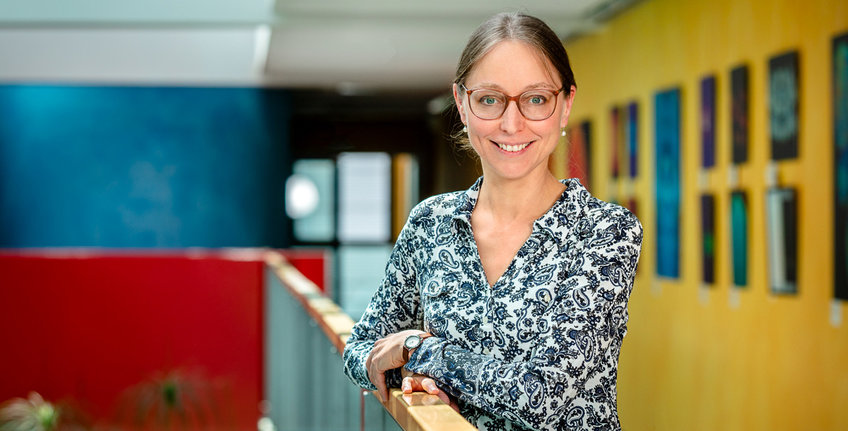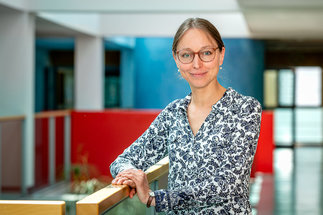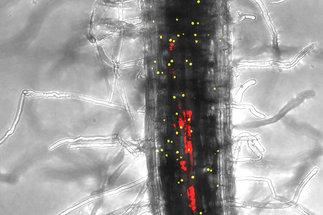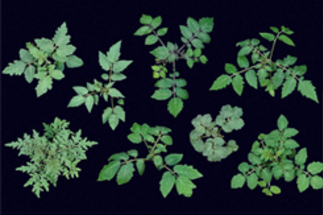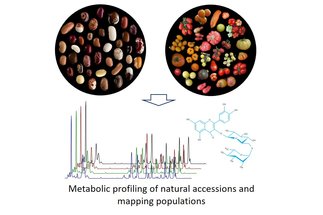Root Biology and Symbiosis
Prof. Dr. Caroline Gutjahr's department studies the symbiosis between soil fungi and plant roots. This symbiosis is called mycorrhiza and is of great importance for the growth and health of plants.
Central research questions are whether and how the establishment of the symbiosis is influenced by environmental factors and which molecules play a crucial role in this process. Professor Gutjahr not only plans to study the molecular processes in plants, but also to analyze fungi, which have hardly been studied so far, in more detail. Furthermore, the department is looking into whether the molecular knowledge can be used to breed mycorrhiza-optimized crops that could contribute to sustainability in agriculture.
Other research topics in her department include structural research on receptor proteins involved in plant interactions with microorganisms (Alexander Förderer) and the identification of factors involved in the regulation of primary metabolism in photosynthetic and heterotrophic tissues (AG Fernie). In addition, a project group (Saleh Alseekh) is working on the identification of genes involved in plant secondary metabolites.
Director of Department 1: Root Biology and Symbiosis
[more]
To improve nutrient uptake, most land plants form symbioses with root-colonizing arbuscular mycorrhizal fungi. The main focus of the research in the group "Mycorrhiza and Root Biology" led by
Prof. Dr. Caroline Gutjahr is to understand the molecular mechanisms underlying the formation of an arbuscular mycorrhiza.
[more]
The group of
Dr. Alisdair Fernie focuses on identifying factors involved in metabolic regulation of primary metabolism within both photosynthetic and heterotrophic tissues. Particular focus is given to the role of the tricarboxylic acid cycle and its participation within various biological processes.
[more]
The independent research group of
Dr. Alexander Förderer focuses on the protein structure determination of plant receptors that monitor and mediate responses to environmental microbes. The group uses various expression systems (e.g., insect cells, bacteria, tobacco) for recombinant protein expression and uses cryo-EM technology for protein structure determination.
[more]
The project group of
Dr. Saleh Alseekh focuses on the identification of genes involved in plant specialized metabolites. The group uses quantitative genetic approaches and metabolomics techniques to assess the chemical diversity across a wide range of natural accessions and mapping populations of crop plants.
[more]
